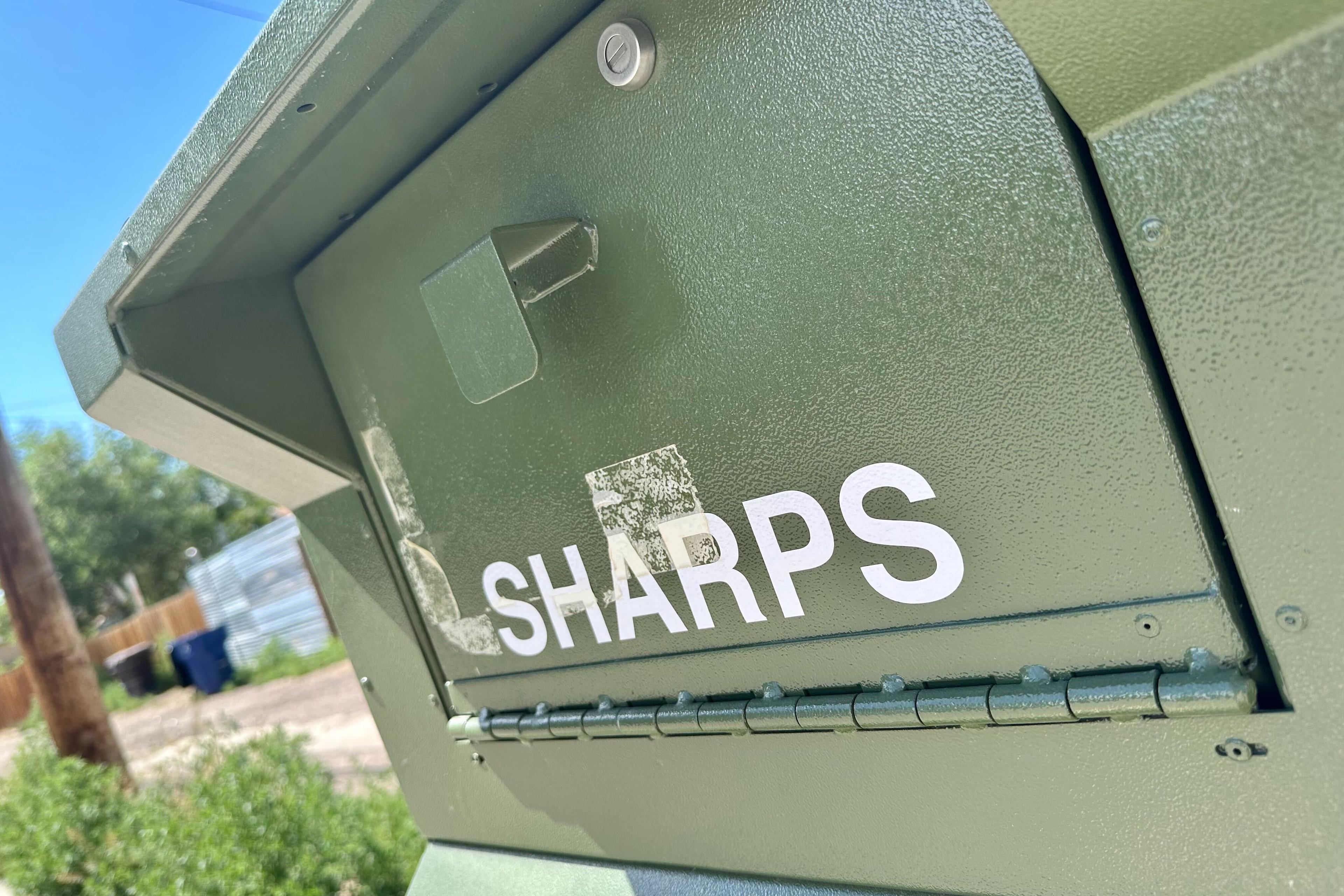
A citizen push to overturn Pueblo’s recent ban on syringe exchanges has failed. Advocates in Pueblo gathering signatures for a ballot referendum to overturn the ban said they were abandoning the effort this week as the deadline to submit those signatures closed in.
Laura Sandoval-Adams, a retired nurse who filed an initial petition with the city, said organizers gathered more than 1,200 signatures of the 1,403 required for the petition to make the municipal ballot in November. She said a district judge ruling from June 6 that put a temporary hold on the city’s ban slowed the signature-gathering effort in its final days. The restraining order from Judge Tayler Thomas was in response to a lawsuit challenging the ban from the state chapter of the American Civil Liberties Union.
“When the referendum was started, we had no idea about what legal avenues were even an option to pursue,” said Sarah Money, a program manager at one of the syringe access locations, Access Point Pueblo. “It’s more a matter of letting the ACLU handle the case and circling back to (a ballot measure) if we need to.”
The lawsuit, which the ACLU filed on behalf of the city’s two access programs, argues the city’s ban of the syringe exchanges is preempted by state law. In particular, they point to a bill passed in 2020 that allowed these exchanges to operate without prior local approval. Judge Thomas’s pause on the city’s ban allows the exchanges to again distribute syringes until at least a July 10 preliminary injunction hearing on the case.
Access Point Pueblo stopped distributing syringes for nearly three weeks from when the ban ordinance was signed to the release of the Judge’s injunction on June 6. Money said visitation to Access Point dropped as much as 50 percent during that period.
“Syringes are what brings people in the door. That's what they need,” Money said. “Our whole purpose is to be here to meet people's needs and to build that trust.”
Syringes were again being handed out Thursday and Money said traffic had been steady, but still down from numbers before the city council passed the ban. Supporters of such programs point to research from the CDC and other national health organizations that suggests distribution of clean syringes free of cost reduces the transmission of bloodborne diseases among a population otherwise more likely to share needles.
Programs like Access Point and the other Pueblo site, The Southern Colorado Harm Reduction Association, offer a suite of additional services from distribution of opioid overdose medication naloxone to STI testing and connection to disease treatment and drug rehabilitation.
“I just helped a client this morning navigate to hepatitis C treatment,” Money said Thursday. “That wouldn’t have happened without the work that we’ve put in to build trust with that person over the past four or five years.”
City council members who voted in favor of the ban said they did not dispute the research behind syringe exchanges. They said they cast their vote out of concern of the number of used needles being found in Pueblo’s public spaces, from parking lots to parks to school playgrounds.
Lifelong Pueblo resident Louise Aragon said she often finds the needles outside her downtown apartment building. She worries drug users are more likely to reuse syringes they find on the ground. When she learned that the access programs are intended to prevent that scenario, she said that sounded good in theory.
"That would probably be alright as long as they destroy them or get rid of them,” Aragon said. “Then if they need more, they can go and get them."
Representatives from Access Point told the city council in May that about 72,000 syringes distributed in the previous nine months remained unaccounted for.








